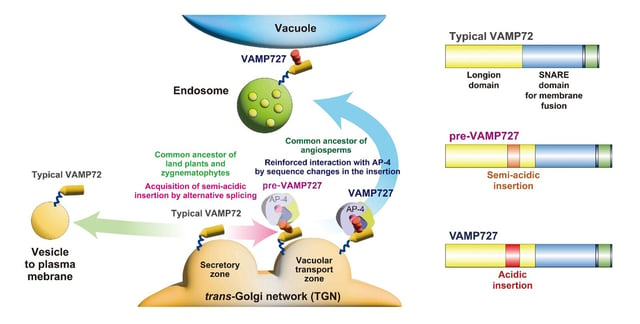Overview
- Seed plants evolved a specialized vacuolar transport pathway to store large quantities of proteins in vacuoles, a system absent in animals and fungi.
- The study identifies VAMP727, a plant-specific protein variant with an acidic amino acid insertion, as key to this vacuolar transport system.
- Researchers traced the stepwise evolution of VAMP727 from ancestral VAMP72 through incremental amino acid modifications that enhanced its interaction with the AP-4 adaptor complex.
- The acidic insertion in VAMP727 acts as a molecular address tag, guiding proteins to vacuoles and ensuring efficient storage protein delivery during seed development.
- These findings could inform crop bioengineering efforts to enhance seed storage capacity and improve nutritional profiles for agricultural applications.
